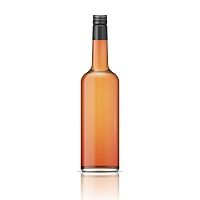Article
Alcohol Can Lower Stroke Risk
Author(s):
Moderate consumption of alcohol can lower the risk of ischemic stroke, Korean researchers report.

Soo Joo Lee, MD, PhD, of the Department of Neurology at Eulji University Hospital in Daejeon, Korea and colleagues found that light to moderate alcohol consumption lowers the risk of ischemic stroke. The results of their study were published in Neurology on October 30, 2015.
The researchers considered 1,848 patients aged 20 years and older who had experienced their first-ever stroke, along with 3,589 controls who had never had a stroke. Several previous studies have shown that “heavy alcohol intake increases the risk of ischemic and hemorrhagic stroke.” But the effect, if any, of light or moderate alcohol consumption has been less studied, remains more controversial, and is not as clearly defined. The researchers suggest that “these controversies may be attributed to heterogeneity of stroke subtypes, potential differential effects across sex and race/ethnic groups, and different beverage types and amounts of alcohol consumed.”
This study was structured to overcome such limitations through the use of large databases within Korea. Nine hospitals in 7 cities “participated in this population-based, case-control study.” Over the course of 25 months, the researchers collected questionnaires regarding alcohol consumption among those with stroke and the controls. They found that, overall nondrinkers were more common among the stroke cases, but that those who did drink consumed larger amounts, more often.
The two most common alcoholic beverages consumed were soju and makkoli, which are both native to Korea. Soju is made from sweet potatoes and tapioca, and makkoli is made from rice and sometimes flavored with corn, chestnut, apple, or other types of produce.
The researchers found that “the effect of lowering the odds of ischemic stroke by alcohol intake was observed up to 3-4 drinks per day independent of traditional stroke risk factors.” The effect was slightly lower for women, with 1-2 drinks per day forming the threshold, however, “the interaction between sex and alcohol intake was not statistically significant.”


